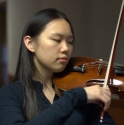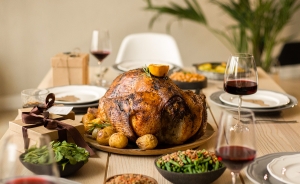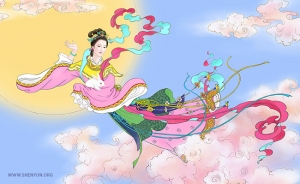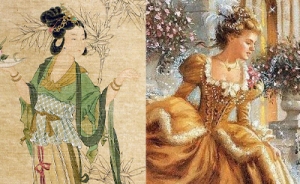Bring on the Oil!
The orchestra gathers backstage behind the orchestra pit 15 minutes before curtain time so the conductor can review the particulars of this theater before we head in.
“The stage is pretty expansive so some tempi may be more steady than usual,” says our conductor Chen Ying, as I interpret for the non-Chinese in our group. “Don't panic because of the dry ice spilling down from the stage and covering your instruments and music sheets.” As I translate, we grimace with memories of the humid fog. She turns around to enter the pit, then pauses and flashes an enthusiastic, “加油!” I freeze too. “Um... Add oil!?”
Some things just don't translate all that well. Later, I explain to the non-Chinese in our East-West orchestra that the conductor wasn't reminding the brass players to oil their valves. Actually, she was using a Chinese term so versatile that its uses run the gamut from right before dancers storm the stage to when a car breaks down on the highway.
“加油” (pinyin: jiā yóu) is comprised of the Chinese characters for “add” and “oil,” hence my clumsy direct translation. Its literal usage is limited to telling your driver to get some gas before you run out in the middle of the road. (I suppose one could also use it in cooking, but Chinese food is oily enough, right?) Figuratively, the term takes on new life.
Broadly speaking, it conveys a sense of encouragement and support. Fans use it to cheer on their favorite team at the big game (“jia you, jia you, go, go, go!” is a common cheer). Friends might fire each other up with it before performing the ultimate dare. Parents will tell their child to “add oil” during finals’ week. We in Shen Yun use it as a send off before starting a performance.
“So it means ‘break a leg’?” offers our German trumpet player. “Yes,” I reply, “but it also means much more than that.” Jia you also includes “Do your best!” “Don’t give up!” “Keep going!” “Go get’em!” “Good luck!” and just about any other positive exclamation. It’s the go-to term for boosting morale.
The Japanese have an equivalent “頑張れ!” (luck), and the Koreans say “Fighting!” (yes, in English). The English language, however, lacks a single term that summarizes the same, hefty meaning of jia you.
That's why, now 50 shows into tour, I still don’t have an intelligent translation for jia you. It’s okay though—the non-Chinese know exactly what I mean when I say it now. For some of them, it’s the first Chinese they’ve learned.

Chani Tu
Violist
4 mars, 2012






